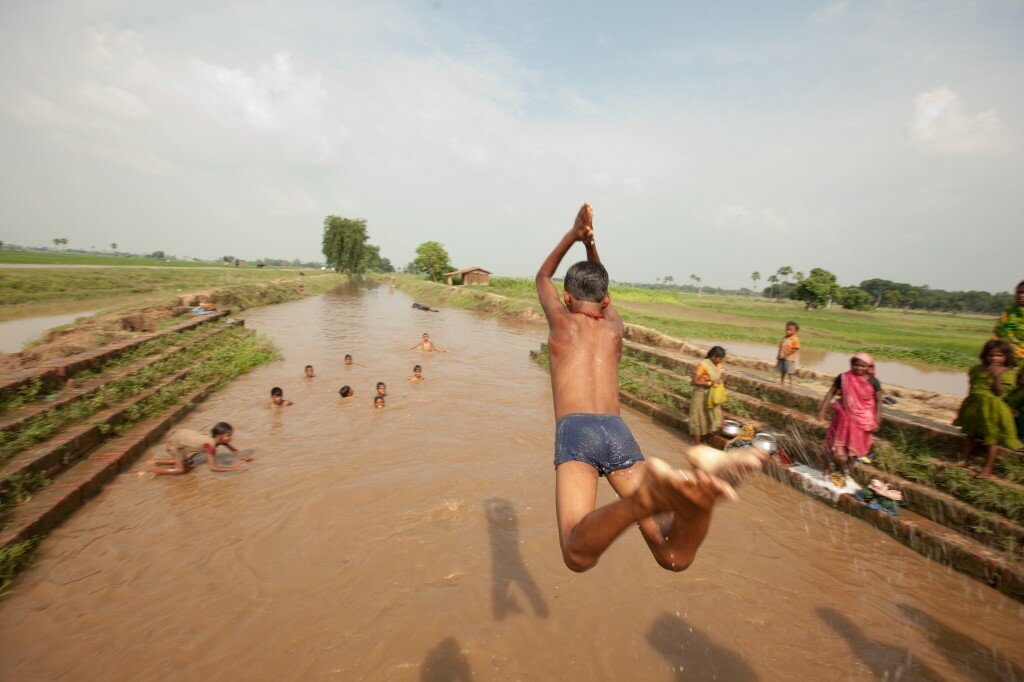Over the past month, we’ve heard many times from the neglected tropical disease (NTD) and water, sanitation and hygiene (WASH) communities about the importance of cross-sector collaboration (see here and here). Momentum has especially been building, though, in the past two weeks.
Just last week, as the part of events recognizing the second anniversary of the London Declaration, we celebrated new commitments from WaterAid and Dubai Cares that will advance integrated deworming and WASH interventions.
This week, the Global Network and partners gathered with the former President of Ghana and Global Network’s NTD Special Envoy, H.E. John Kufuor – who also serves as Chair of the Sanitation and Water for All (SWA) Partnership – to discuss the cost-effective and sustainable strategies our sectors and private industry can take.
Another important conversation also occurred this week: “Why water and toilets matter in foreign aid,” hosted by WaterAid at the National Press Club. Barbara Frost, chief executive of WaterAid UK; Henry Northover, head of policy at WaterAid UK; and Lisa Schechtman, director of policy and advocacy at WaterAid America spoke about how WASH can advance many U.S. interests. WaterAid also invited Dr. Neeraj Mistry, Global Network’s managing director, to weigh in about the health implications of poor WASH circumstances.
Lisa observed that there’s been increasing “recognition that development component isn’t just good for moral authority but that it helps bolster defense and diplomacy components.” The 2012 National Intelligence Estimate on Global Water Security emphasizes that water can be a tool of conflict or peace and makes the connection that poverty reduction – through WASH – can increase security.
Similarly, the U.S. Center for Disease Control and other collaborators published a Global Health Security Agenda in February to thwart risk of infectious diseases.
Barbara then stressed the impact that WASH has on “women’s health, girls’ lives, empowerment and what it means for their healthy development.” For instance, in many vulnerable communities, “girls drop out of school because they are carrying water or because there aren’t adequate toilets when they go through puberty.”
In the same way, NTDs disproportionately impact females. When END7 campaign ambassador Abhishek Bachchan visited a lymphatic filariasis clinic in Orissa State, India, he heard from women about how the stigma and misinformation associated with the disease prevented their daughters from getting married and participating equally in society. Women and girls with a certain form of schistosomiasis, one of the most common NTDs, are also three times more likely to contact HIV.
Henry, who noted that “dirty water is the vector for so many of the diseases that you see under the microscope,” also reflected on global challenges in the WASH community. Most importantly was that some serious challenges on how aid is targeted.
Global health is a fraction of one percent of the federal $1.012 trillion budget – and the budget for NTDs is even smaller. But this tiny amount has a huge impact, which is why the Global Network is urging the public to encourage key members of Congress to protect funding for this critical program.
Then Neeraj emphasized, “this is not an either or measure – we have to do both [WASH and NTDs] to have a significant and sustainable impact on many of these diseases.” While WASH and NTDs “may seem like disparate thematic issues in the development agenda, we are looking at similar thematic platforms” to make positive changes, in schools or during child health weeks.
Ultimately, we will not stop the transmission of NTDs without clean water, improved sanitation, and better hygiene practices, and even with good water, we need to distribute treatments to protect against disease. The Global Network looks forward to continuing its support as collaboration and dialogue between both sectors grows.

